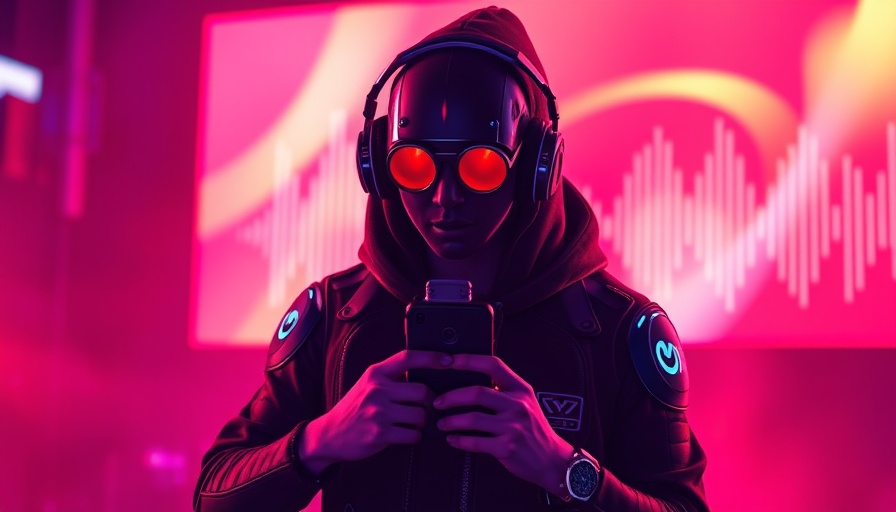
Reckoning with AI-Generated Fraud in Music Streaming
As the digital age continues to reshape the music industry, an unsettling revelation has emerged: a staggering 70% of streams for AI-generated songs on Deezer, a prominent French music streaming platform, are reportedly fraudulent. This alarming statistic shines a light on the dark underbelly of how technology, particularly artificial intelligence (AI), is being exploited for financial gain.
What’s Happening Under the Hood?
According to Deezer, although AI-produced music represents only 0.5% of all streams, fraudsters have found a loophole. By deploying bots that mimic user engagement, they inflate the listening numbers of these AI tracks to rake in royalties. The tactics are designed to slip under the radar of detection systems, thus posing a significant challenge for platforms struggling to maintain the integrity of their content.
The Role of Deezer in Combatting Fraud
To counteract this fraud, Deezer claims to be at the forefront of technology implementation. Their proprietary tool is touted as capable of identifying 100% AI-generated content from leading models like Suno and Udio. The stakes are high, as the global streaming market reached $20.4 billion last year, making it a tempting target for criminals hoping to profit from misleading practices. Deezer, while fighting against this tide, emphasizes its commitment to ensuring that artists receive fair compensation.
Implications for Legitimate Artists
The ramifications of such fraudulent streams extend far beyond just Deezer. The International Federation of the Phonographic Industry (IFPI) notes that this fraudulent activity jeopardizes the earnings of genuine artists, as funds that should be directed toward them are siphoned off by those engaging in deceitful behaviors.
Looking Ahead: The Future of AI in Music
As technology and music increasingly intertwine, understanding AI becomes crucial. The rise of fraudulent AI-generated content calls into question how we perceive and value music. The situation raises important discussions regarding the ethical dimensions of AI in creative fields—can a song truly be considered art if it’s generated without human emotion or intention?
This question underscores the need for vigilance and education in AI, particularly for those interested in its applications within the music industry. It makes the learning of AI fundamentals, both as consumers and potential creators, more vital than ever, ensuring that we engage critically with these technological advancements.
Conclusion: Staying Informed in a Changing Landscape
It's a rapid evolution in the music streaming landscape, as AI technologies develop and grow. For anyone keen on navigating this complex digital terrain—whether you’re a music lover, professional, or aspiring artist—understanding the implications of AI is essential. As this arena continues to change, staying informed will be key to making educated decisions and promoting ethical practices in AI and beyond.
 Add Row
Add Row  Add
Add 




 Add Row
Add Row  Add
Add 



Write A Comment